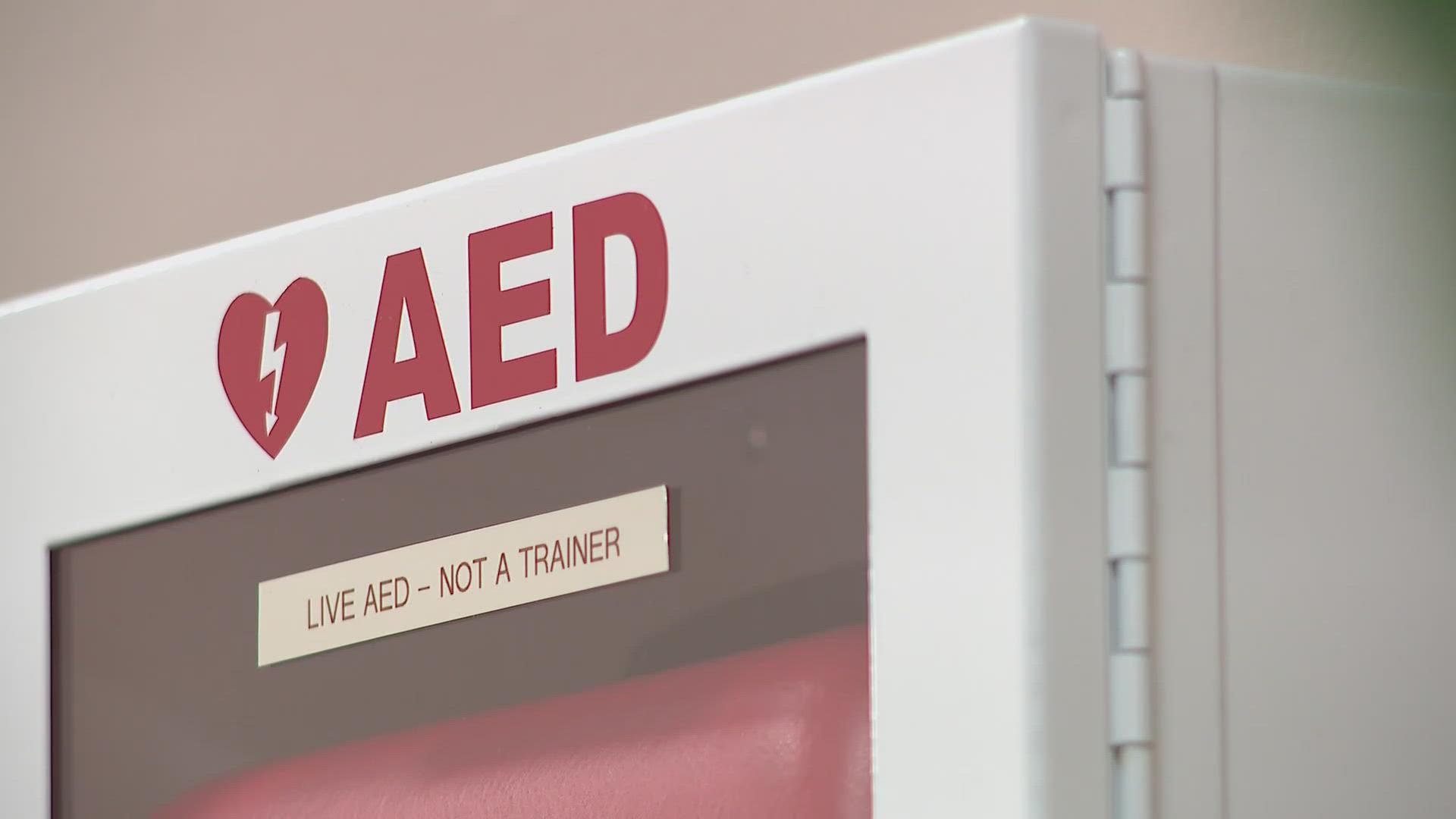COLUMBUS, Ohio — From your local pharmacy, to your place of worship, where you pump gas, where you get your license renewed, or where your kids play sports or go to school — none of them are mandated to have an AED or automated external defibrillator.
Nearly 30 states have AED mandates that certain businesses have these life-saving boxes. Ohio is not one of them.
In May 2021, Jill Hutchinson’s father Van, headed to Lowe’s off Sawmill Road to get a lightbulb.
He collapsed in sudden cardiac arrest while in the store. She said someone provided CPR, but it wasn’t enough.
“Between the time the squad got there and the time he got to the hospital he was pronounced dead,” she said.
Years later, she wonders what if the store had an AED, would he still be alive today?
“I believe it would have made a difference possibly in my father's life. I was actually told that at the hospital, “she said.
In 2019, Lowe’s made a commitment to have AEDs in all of its stores nationwide.
But 10TV found many businesses where large groups of people gather don’t have AEDs in part because of the cost but also because it’s not required by law.
In January, a woman was shot in her car strip mall on Sunbury Road. An employee at the urgent care just a few feet away told 10TV he went to look for AED but the shop didn’t have one so he ran to Kroger next door which had one of the life-saving devices.
In Ohio, even schools are not mandated to have AEDs, and there are no federal laws requiring nursing homes to have them either.
“I am unaware of the current laws surrounding requirements for AED placement in urgent cares, nursing homes, or churches. While I would encourage all facilities to have the proper equipment necessary to resuscitate an individual should sudden cardiac arrest occur, I also understand that these are privately owned entities and organizations,” said Ohio State Representative Richard D. Brown (D - Canal Winchester)
Brown said he plans to re-introduce legislation this year that would mandate AEDs in Ohio schools.
“The goal of the legislation that I am proposing, which is currently being worked on, is to protect the lives of our students and children. We may in the future reassess crafting legislation to address expanding AED laws, but for now, I will stay focused on making sure schools and public recreational facilities, at which organized sporting events occur, have the proper equipment they need to best handle cases of Sudden Cardiac Arrest,” he said.
The scariest part of sudden cardiac arrest is that every minute a person doesn’t get shocked by an AED the chance of survival declines by 7 to 10%.
“The defibrillator is what is actually going to reverse the cause of the cardiac arrest. CPR is buying us time to give us a viable patient so that the defibrillator can restore the heart to its normal cardiac rhythm,” said Zach Schaffer, CPR trainer at Central Ohio CPR.
Sara Bobst teaches CPR and AED training across the state. She said about 40% of businesses that hire her to train staff don’t have an AED.
“I train pharmacists for five different major companies and not one of them has AEDs in all of them. I'm actually trying to get in front of somebody in the state of Ohio that can recognize that there should be a bill that mandates in any company that deals with pharmaceuticals in Ohio period,” she said.
Mary Newman is the president of the Sudden Cardiac Arrest Foundation.
“Making AEDs mandated in places of large gatherings is absolutely essential,” she said.
She said when someone provided immediate CPR survival increases by 30%.
But when someone uses an AED, she says, “It goes up to 50%,” she says.
As for Jill Hutchinson, she hopes her heartbreaking story of losing her father, will make other businesses consider buying an AED considering this life-saving piece of medical equipment slightly more expensive than an iPhone.
“You never know when or where or what time that someone you love or someone you care about could have a sudden cardiac event and having something like on-site could save their life,” she says.

